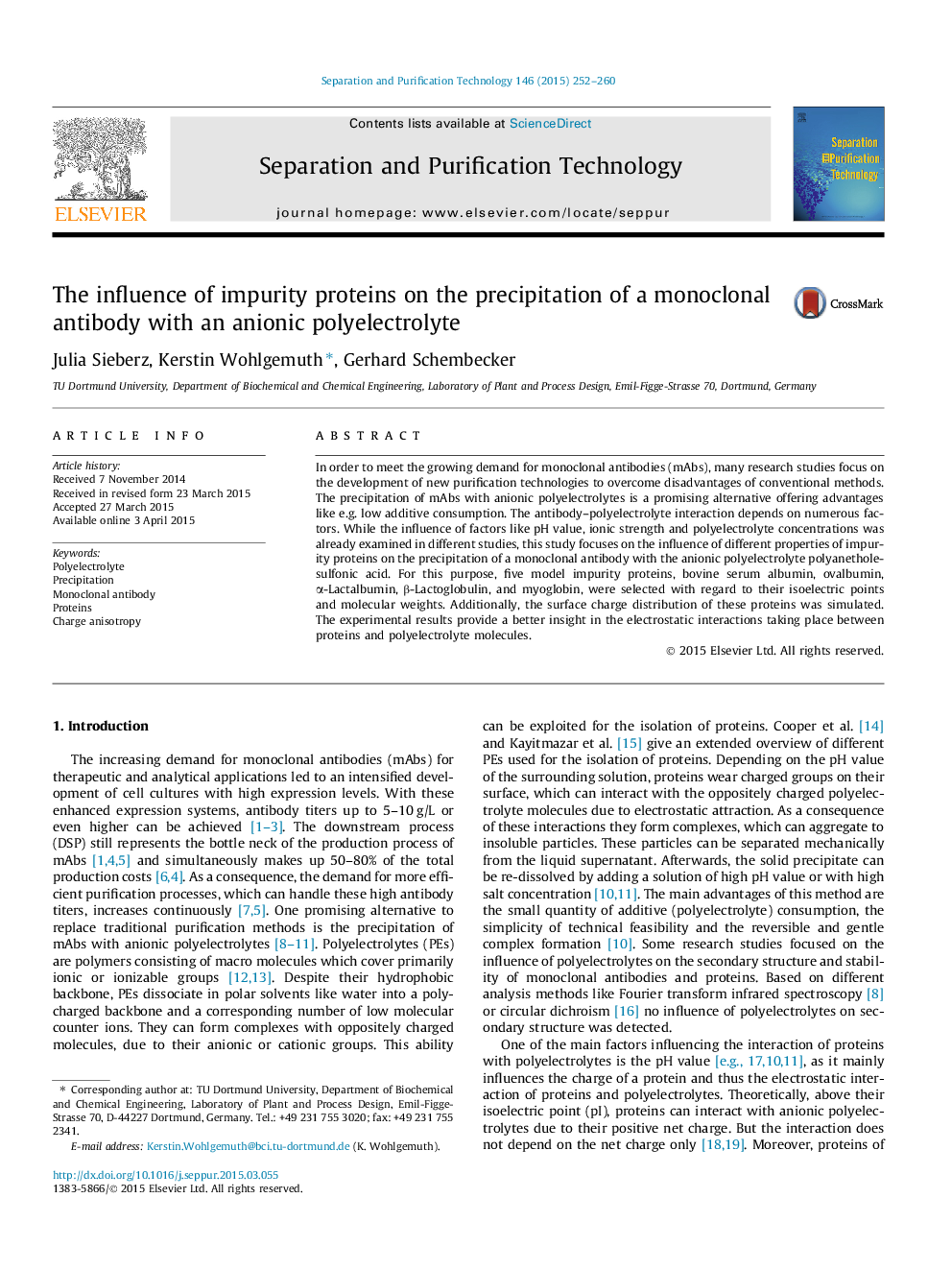| کد مقاله | کد نشریه | سال انتشار | مقاله انگلیسی | نسخه تمام متن |
|---|---|---|---|---|
| 640727 | 1456973 | 2015 | 9 صفحه PDF | دانلود رایگان |
• Influence of impurity proteins on polyelectrolyte (PE) precipitation of an antibody.
• Surface charge distribution of different proteins in dependence of pH value.
• Effect of surface charge distribution on PE precipitation of proteins.
In order to meet the growing demand for monoclonal antibodies (mAbs), many research studies focus on the development of new purification technologies to overcome disadvantages of conventional methods. The precipitation of mAbs with anionic polyelectrolytes is a promising alternative offering advantages like e.g. low additive consumption. The antibody–polyelectrolyte interaction depends on numerous factors. While the influence of factors like pH value, ionic strength and polyelectrolyte concentrations was already examined in different studies, this study focuses on the influence of different properties of impurity proteins on the precipitation of a monoclonal antibody with the anionic polyelectrolyte polyanetholesulfonic acid. For this purpose, five model impurity proteins, bovine serum albumin, ovalbumin, α-Lactalbumin, β-Lactoglobulin, and myoglobin, were selected with regard to their isoelectric points and molecular weights. Additionally, the surface charge distribution of these proteins was simulated. The experimental results provide a better insight in the electrostatic interactions taking place between proteins and polyelectrolyte molecules.
Journal: Separation and Purification Technology - Volume 146, 26 May 2015, Pages 252–260
